 Beth Gutcheon is the author of Still Missing, More Than You Know and Leeway Cottage, among other books. Her ninth novel, Gossip, was published by Morrow on March 12, 2012. Gutcheon lives in New York City with her husband and her attack poodle, Daisy Buchanan.
Beth Gutcheon is the author of Still Missing, More Than You Know and Leeway Cottage, among other books. Her ninth novel, Gossip, was published by Morrow on March 12, 2012. Gutcheon lives in New York City with her husband and her attack poodle, Daisy Buchanan.
On your nightstand now:
To be clear, my nightstand is a sturdy side table in the living room where I read after everyone else is in bed. It's stacked pretty high, but the books in current rotation are Claire Tomalin's Dickens, for pleasure, and Simon Sebag Montefiore's Jerusalem, for research for a new novel and also for fun. I'm a fan of his novel Sashenka. Also, Rembrandt's Eyes by Simon Schama because we're going to Amsterdam next month. They're all pretty fat; someone should make a book derrick.
Favorite book when you were a child:
All the Oz books by L. Frank Baum. (I disdained the ones by Ruth Plumly Thompson, who carried on after he died, though I read them when I ran out of real ones.) The only one I didn't love was The Wizard of Oz, perhaps because it's so overexposed, but also it seems more programmatic than the rest. Anything with the Nome King in it gave particular joy.
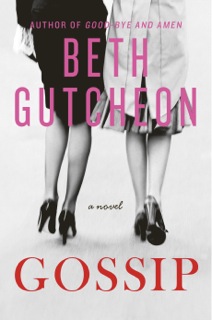 Your top five authors:
Your top five authors:
Austen, Dickens, Willa Cather, Scott Fitzgerald and Evelyn Waugh.
Book you've faked reading:
Gone with the Wind when I was 12 and my best friend was mad for it while I was still caught up with the Black Stallion books. Being unmasked in this fraud was so painful that I read GWTW immediately to recover my dignity, and then was of course in thrall to it for years myself.
Book you're an evangelist for:
The Book of Ebenezer LePage by G.B. Edwards. It was published posthumously in 1981, the author's only completed work; the story of an old man on Guernsey looking back on his life and, oh, the language! Every page is vivid and wry and chewy and makes you want to move to the Channel Islands. It goes in and out of print, but is currently in, as a New York Review of Books classic. Also, The Assault by Harry Mulisch, a story that begins with a disgusting act of moral cowardice in occupied Holland during World War II, with a circular structure in which each chapter reveals something new about what happened until by the end it brings you around to see that the initial event was entirely different from what it looked like. Brilliant.
Book you've bought for the cover:
Cookbooks and garden books always pose a danger. I bought Of Gardens by Paula Deitz for the most ethereally beautiful cover ever, but then I accidentally also read it. Lovely inside, too.
Book that changed your life:
Great Expectations. I'd been hooked on Dickens since reading David Copperfield in eighth grade, but GE was the thunderclap one. The ending is so stunning, the last thing you are expecting, and yet you can easily see that you'd been set up for it from the opening scene. It showed me what a miracle of craft that kind of devastatingly satisfying storytelling is, conceived as a whole from the ending forward, with the machinery in plain sight, yet unseen until the author wants you to see it.
Favorite line from a book:
To be honest, the first line of Pride and Prejudice: "It is a truth universally acknowledged," etc., but everyone must say that. Here's a random one from Dombey and Son, about witnesses signing the church registry after a wedding: "All the party sign--Cousin Feenix last, who puts his noble name into a wrong place and enrolls himself as having been born that morning." It always makes me laugh, yet it's such a throwaway, like thousands of such moments in Dickens.
Book you most want to read again for the first time:
If I have to choose one, I guess Brideshead. But wait--what about My Antonia, or The Great Gatsby, or any Jane Austen at all?
Books you are most looking forward to:
Anything from Elizabeth Strout. Olive Kittredge is a marvel, but I love her earlier two novels even more. Also, Hilary Mantel's sequel to Wolf Hall. Wolf Hall is such dazzling historical fiction, psychologically contemporary but not anachronistic. I love her describing an angry Ann Boleyn as looking as if someone had knitted her and pulled the stitches too tight.
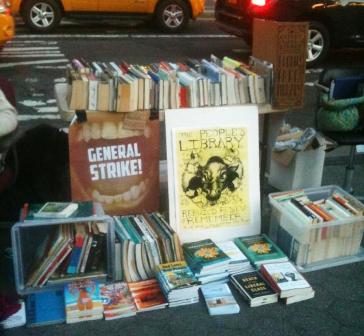 Earlier this week, the Occupy Wall Street Library was reassembled in New York City's Union Square Park, but its presence there was shortlived. By 10 p.m. Tuesday, police had cleared out most of the library, leaving books behind. GalleyCat posted photos, as well as "a chronological collection of tweets from activists showing what happened to the library." The OWS librarians later tweeted: "People got sold out, Books got thrown out!"
Earlier this week, the Occupy Wall Street Library was reassembled in New York City's Union Square Park, but its presence there was shortlived. By 10 p.m. Tuesday, police had cleared out most of the library, leaving books behind. GalleyCat posted photos, as well as "a chronological collection of tweets from activists showing what happened to the library." The OWS librarians later tweeted: "People got sold out, Books got thrown out!"











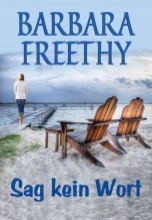 "I've translated three titles into foreign languages," she said. "Don't Say A Word has a German edition (Sag kein Wort), Daniel's Gift has a Spanish edition (El Regalo de Daniel) and Just The Way You Are has a French edition (Exactement Comme Tu Es)."
"I've translated three titles into foreign languages," she said. "Don't Say A Word has a German edition (Sag kein Wort), Daniel's Gift has a Spanish edition (El Regalo de Daniel) and Just The Way You Are has a French edition (Exactement Comme Tu Es)." 
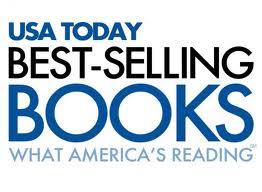 Call it a momentary snapshot of the American reader. This week's
Call it a momentary snapshot of the American reader. This week's 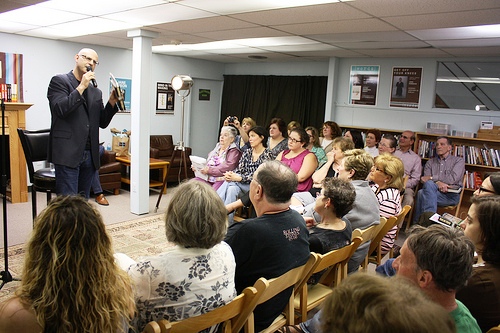

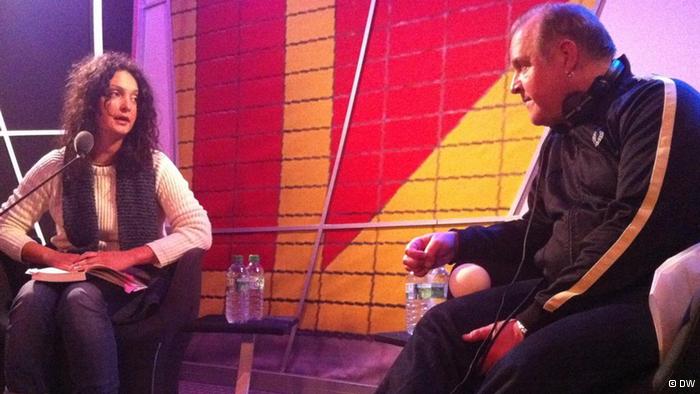 At 11 p.m., "the audience put down their drinks, the music fades away and host Mike Litt, on stage, welcomes the crowd listening on the radio and live in front of him" to an author interview. About 300,000 people listen to Klubbing each week, and those attending "have won their way into the crowd, calling in to the station at specific times during the week. They are the lucky ones--the demand for tickets is always pretty high," Deutsche Welle wrote.
At 11 p.m., "the audience put down their drinks, the music fades away and host Mike Litt, on stage, welcomes the crowd listening on the radio and live in front of him" to an author interview. About 300,000 people listen to Klubbing each week, and those attending "have won their way into the crowd, calling in to the station at specific times during the week. They are the lucky ones--the demand for tickets is always pretty high," Deutsche Welle wrote.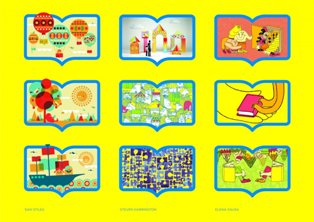 Fast Company explored Mother New York's
Fast Company explored Mother New York's  In a Game of Thrones feature headlined "
In a Game of Thrones feature headlined " Beth Gutcheon
Beth Gutcheon Your top five authors:
Your top five authors: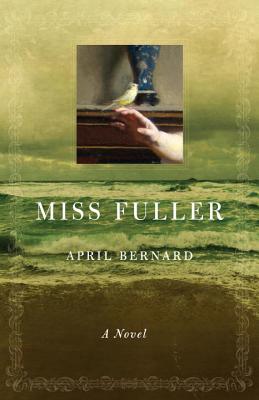 When Margaret Fuller perished in a shipwreck off the coast of Fire Island in 1850 along with her husband and son, the world was quick to forget the Transcendentalist author. Male counterparts in the movement--including Emerson, Thoreau and Hawthorne--dismissed her foundational feminist essay, Woman in the Nineteenth Century, as insignificant, even scandalous. In Miss Fuller, April Bernard takes a speculative scalpel to the life of Margaret Fuller, offering a narrative of her experiences that shines a harsh and unbecoming light on the male Transcendentalists. The novel also explores the implications of the misogyny implicit in their actions--not only for the 19th century, but for the present day as well.
When Margaret Fuller perished in a shipwreck off the coast of Fire Island in 1850 along with her husband and son, the world was quick to forget the Transcendentalist author. Male counterparts in the movement--including Emerson, Thoreau and Hawthorne--dismissed her foundational feminist essay, Woman in the Nineteenth Century, as insignificant, even scandalous. In Miss Fuller, April Bernard takes a speculative scalpel to the life of Margaret Fuller, offering a narrative of her experiences that shines a harsh and unbecoming light on the male Transcendentalists. The novel also explores the implications of the misogyny implicit in their actions--not only for the 19th century, but for the present day as well. 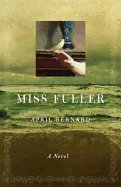
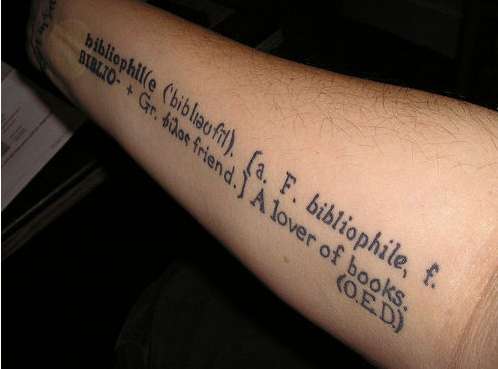 What intrigues me about Karnad's damnation of fake bibliophilia is his assumption that the roles of reader and "bookser" are mutually exclusive; that booksing is an inevitable sign of the bibliocalypse. As an old reader and bookser, I must disagree.
What intrigues me about Karnad's damnation of fake bibliophilia is his assumption that the roles of reader and "bookser" are mutually exclusive; that booksing is an inevitable sign of the bibliocalypse. As an old reader and bookser, I must disagree.